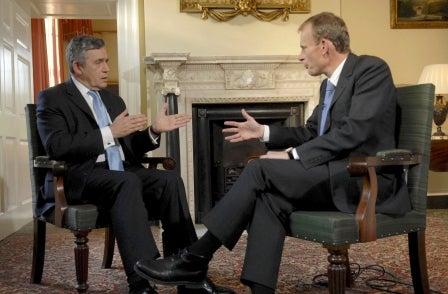Suggestions
Patrick Wintour
political journalist
Patrick Wintour is a prominent British journalist, currently serving as the Diplomatic Editor for The Guardian. Born on November 1, 1954, he has had a distinguished career in political journalism, having previously held the position of Political Editor at The Guardian from 2006 to 2015. He also worked as the Political Editor of The Observer and has been recognized for his expertise in political reporting, particularly regarding the Labour Party.12
Early Life and Education
Wintour is the son of Charles Vere Wintour, a former editor of the Evening Standard, and Eleanor "Nonie" Trego Baker, an American. He attended prestigious institutions including The Hall School in Hampstead, Westminster School, and Corpus Christi College, Oxford. His family includes notable figures such as his sister, Dame Anna Wintour, the editor-in-chief of Vogue magazine.1
Career Highlights
Wintour began his journalism career at the New Statesman in the late 1970s before joining The Guardian as a chief Labour correspondent in 1983. His career at The Guardian has spanned several decades, marked by significant roles:
- Chief Political Correspondent (1988–1996)
- Political Editor of The Observer (1996–2000)
- Returned to The Guardian as Chief Political Correspondent (2000–2006)
- Appointed Political Editor in 2006 and transitioned to Diplomatic Editor in 2015.13
Wintour has been recognized with awards such as the British Press Awards' "Political Journalist of the Year" in 2007, highlighting his impact on political journalism in the UK.2
Personal Life
Patrick Wintour has been married twice; his second wife is Rachel Sylvester, a journalist for The Times, with whom he has two children. He also has two children from his first marriage to journalist Madeleine Bunting.1
In addition to his editorial roles, Wintour is noted for being the Chairman of Political Lobby Correspondents at Westminster, further solidifying his influence within political journalism circles.4
Highlights
John Healey UK defence secretary says “what America has done [in Iran] has made us all safer” adding “we are in a new circumstances in which the very grave threat of Iran gaining a nuclear weapon has been alleviated” . UK FS Lammy this week said damage assessment not complete while US leaks suggest Iran nuclear program not set back in way Trump claimed. Pressed, Healey cannot express support for US actions, its legality or set out UK assessment of the damage to nuclear program.
Foreign Office questions Andrew George (St Ives) (LD) “Will the Government let us know what assessment they have made of Israel’s stockpile of nuclear weapons?” Mr Falconer Middle East minister “The hon. Gentleman will understand why I will not comment on those issues from the Dispatch Box.”
